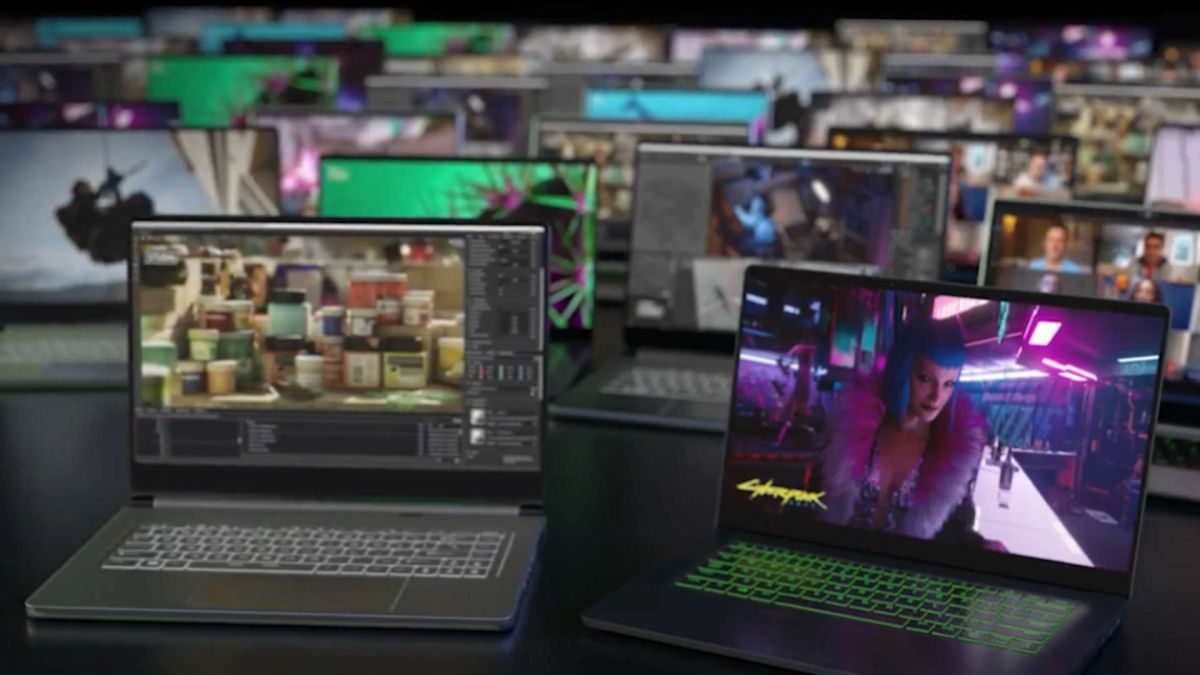The PC industry suffers its worst decline in years, though it's no cause for alarm

The PC industry suffered a precipitous drop in shipments in the second quarter of 2022, according to IDC and Gartner analysis. While on its face that doesn't bode well, it's important to remember the industry experienced a boom during the pandemic and these declines can be interpreted as a return to normality.
Research firms IDC and Gartner both released estimates of worldwide second quarter PC shipments (via Market Watch). IDC claimed the 15.3% fall in sales to 71.3 million was the worst quarterly drop since it began tracking the market in the mid 1990s. Gartner's figure was slightly better, claiming a 12.6% drop to 72 million units.
Whatever the precise amount, a dip in the PC market isn't surprising. According to IDC, its 71.3 million Q2 sales figure isn't far below the initial pandemic level of 74.3 million from Q2 2020 and still well above the 62.1 million and 65.1 million estimated sales from Q2 of 2018 and 2019 respectively. So, while the headline drop might look bad, the PC market remains in a strong state.
Gaming continues to be a large contributor to the market overall. Research by Ampere Analysis suggests the PC Gaming content and services market is set to fall from $35.3 billion to $34.2 billion, which is a much lower decrease than the drop in the overall PC hardware market. Despite macroeconomic challenges, gamers continue spending money. Ampere attributes the drop to pandemic-forced closures of gaming cafes in Asia.
Your next upgrade
(Image credit: Future)
Best CPU for gaming: The top chips from Intel and AMD
Best gaming motherboard: The right boards
Best graphics card: Your perfect pixel-pusher awaits
Best SSD for gaming: Get into the game ahead of the rest
The extremely inflated prices of GPUs surely contributed to the drop in sales as well. Though the GPU market began to recover earlier than Q2, pricing was still well above RRP levels. Many have held off on upgrades while GPUs begin their downward price trend, hoping to snare a cheaper card or system in the future. Will this be reflected in Q3 PC shipments? Or will consumers continue to put off their purchases as next-gen products draw near?
Next-generation products known to be on the way include new CPUs and platforms from Intel and AMD and new GPUs from Nvidia and AMD. Early adopters may spend a lot of money per device or unit, but overall gaming volume isn't expected to pick up until 2023 when more affordable next gen CPUs, GPUs and systems will inspire more of the mainstream market to upgrade.
The PC market and PC gaming isn't going anywhere. The pandemic ushered in a new era of working from home and it's a trend that's likely to continue. People quickly realized their phones and tablets were poor productivity tools, which led to a boom in the sales of PCs with better productivity, multitasking and video conferencing capabilities. Gamers too found they had more home-time on their hands.

(Image credit: Getty Images)
The overall PC industry and gaming market faces strong headwinds. Macroeconomic concerns including inflation and rising interest rates are sending ripples through the market. The Ukraine war, Chinese lockdowns and resulting loss of manufacturing output, rising energy and logistics costs are all weighing on the market.
Will next-gen products inspire a new round of spending on upgrades? It will for gaming enthusiasts, though a question mark remains over the wider PC market. Gaming remains a well-performing segment of the industry, so despite the gloomy headline our hobby remains strong and likely to stay that way.




